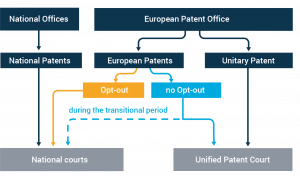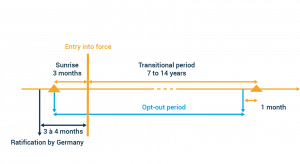- Trademarks & Designs
- Trademarks & Designs
- Strategy & managementUnlock the potential of your brand portfolio
- SearchingScreening and clearance search with smart pre-selection
- RegistrationTailored support to maximise your brand potential
- WatchingMonitor rights efficiently and cost-effectively worldwide
- Monitoring & prosecutionProtect and enforce rights on- and off-line
- Renewals & recordalsFlexible renewal and recordal services
- Strategy & management
- IP consultingBrand development, audits, licensing, M&A, valuation/monetisation, contract management and more
- IP consulting
- Patents
- Solutions
- Trademarks & Designs
- Trademarks & Designs
- Strategy & managementUnlock the potential of your brand portfolio
- SearchingScreening and clearance search with smart pre-selection
- RegistrationTailored support to maximise your brand potential
- WatchingMonitor rights efficiently and cost-effectively worldwide
- Monitoring & prosecutionProtect and enforce rights on- and off-line
- Renewals & recordalsFlexible renewal and recordal services
- Strategy & management
- IP consultingBrand development, audits, licensing, M&A, valuation/monetisation, contract management and more
- IP consulting
- Patents
- Solutions
- Contact
- About us
- About us
- About usProud to support iconic brands and innovative organisations worldwide
- Mission & visionDiscover how we are redefining IP management through dynamic, strategic and personalised services
- MilestonesExplore our history from our founding 135+ years ago to the present day
- Our offices18 offices and unique network of specialists delivers local expertise on a global scale
- Social responsibilityWe strive to positively impact the environment and the global community in which we work and live
- GovernanceInnovation, client focus and a passion for IP. Meet our management team
- About us
- Careers
- Log in
- About us
- About us
- About usProud to support iconic brands and innovative organisations worldwide
- Mission & visionDiscover how we are redefining IP management through dynamic, strategic and personalised services
- MilestonesExplore our history from our founding 135+ years ago to the present day
- Our offices18 offices and unique network of specialists delivers local expertise on a global scale
- Social responsibilityWe strive to positively impact the environment and the global community in which we work and live
- GovernanceInnovation, client focus and a passion for IP. Meet our management team
- About us
- Careers
- Log in

Unified Patent Court opt-outs: Opting out from the jurisdiction of the UPC
With the Unitary Patent and Unified Patent Court system on the horizon, the first question for European patent rights holders is whether to opt-out from the jurisdiction of the UPC before the system comes into force. Marie-Noëlle de la Fouchardière explains the options and offers some advice.
The long-awaited Unitary Patent (UP) and Unified Patent Court (UPC) system is expected to come into being in late 2022 or early 2023. As a holder of European patent rights, it is important to understand what this means and to consider what steps to take. One of the first questions is whether to opt-out rights from the jurisdiction of the UPC before the system comes into force.
What is the jurisdiction of the Unified Patent Court?
Once the system is launched, the Unified Patent Court will become competent for decisions relating to the validity and infringement of “classical” European patents (EPs), European patents with unitary effect (UP), and supplementary protection certificates (SPCs) derived from them in all member states that have ratified the Unified Patent Court Agreement (UPCA).
The jurisdiction of the UPC will be exclusive without any possible derogation for unitary patents.
For all other European titles (EP applications, EP patents without unitary effect and corresponding SPCs), during a transitional period of seven years, which can be extended up to 14 years:
- the jurisdiction of the UPC will not be exclusive and national courts will remain competent in parallel
- the holders will be able to derogate from the jurisdiction of the UPC by opting-out their titles
 If patent holders do not proactively opt-out of the UPC’s jurisdiction, existing European rights in member states that have ratified the UPCA will fall under the jurisdiction of both the UPC and the national courts once the UPCA enters into force.
If patent holders do not proactively opt-out of the UPC’s jurisdiction, existing European rights in member states that have ratified the UPCA will fall under the jurisdiction of both the UPC and the national courts once the UPCA enters into force.
At the start of the system, at least 17 EU countries will have ratified the UPCA: Austria, Belgium, Bulgaria, Denmark, Estonia, Finland, France, Germany, Italy, Latvia, Lithuania, Luxembourg, Malta, Netherlands, Portugal, Slovenia and Sweden.
Why would you opt-out from the jurisdiction of the UPC?
The procedure before the UPC was designed to be quick and the decisions will be enforceable across on all member states party to the UPCA. This makes it a powerful tool both for patentees to enforce their rights and for third parties to invalidate patents.
The main danger of the system for patentees is that of central revocation at the UPC. This risk can be avoided by opting-out of the UPC’s jurisdiction.
Any holder that has opted out of the UPC's jurisdiction may later withdraw this opt-out provided that no action has been initiated before a national court. Thus, when a patent asset is opted-out, a third party can permanently prevent the holder from exercising its rights centrally before the UPC by initiating an action before a national court.
Patent right holders must therefore consider carefully the advantages and disadvantages of opting-out, including the risk of centralised attack and the importance of being able to exercise rights before the UPC. To manage the risk, an option could be to split patents relating to the same business between the two systems.
When should you derogate?
Opt-out declarations for published applications and existing European patents may start to be filed three months before the entry into force of the UPCA (the Sunrise period). They may then continue to be filed at any time during the transitional period provided that no action has been brought before the UPC.
 Opting-out during the Sunrise period will ensure that no central revocation action can be brought by a third party once the UPC enters into force. The three-month Sunrise period will start the month after Germany ratifies the UPCA.
Opting-out during the Sunrise period will ensure that no central revocation action can be brought by a third party once the UPC enters into force. The three-month Sunrise period will start the month after Germany ratifies the UPCA.
The opt-out will remain effective for the life of the patent (even beyond the transitional period), but the holder may withdraw it at any time (provided that no action has been brought before a national court). It will not be possible to file a second opt-out declaration if the first one has been withdrawn.
How to file UPC opt-out declarations
Opt-out declarations for published EP applications, granted European patents and SPCs are made online at the registry of the UPC. They can be filed by the holder of the right or an authorised representative. No official fee is due. It is possible to include several titles in the same declaration.
The declaration must indicate, for each title, the name(s) of the natural or legal person(s) entitled to be registered as holder of the patent right in the European/national register, whether such person(s) is (are) registered. There is no obligation to update the registers before opting-out, but it is essential that the names mentioned in the declaration are correct. No checks will be made by the UPC at the declaration stage. In the event of an action before the UPC, the opt-out will have no effect if it is found incorrect.
If the titles subject to the opt-out are held by several holders (joint holders, different holders in different states, or patents and SPCs held by different persons), all holders must act jointly through a common representative.
Opt-out declarations will be published in real time in the UPC registry and will be publicly accessible online.
There is a procedure for correcting erroneous opt-out declarations and for removing declarations made by an unauthorised person.
How to prepare your UPC opt-out strategy
For holders who are considering opting-out from the UPC’s jurisdiction for all or part of their portfolio, it is advisable to start preparing now, in particular, by:
- defining an opt-out strategy, especially for granted European patents;
- identifying the titles concerned;
- verifying the identity of the persons entitled to be registered as holders in the European or national registers for the titles concerned;
- in case of discrepancy, considering updating the registers;
- obtaining the necessary consent of any other holders; and
- gathering the necessary opt-out information in a single file to enable a bulk opt-out declaration.
Novagraaf is here to assist you with all of these steps, including advising you on developing the right opt-out strategy for your European rights and filing individual or bulk opt-out declarations for you. We can also assist you to select the right filing routes to protect your future innovations in Europe from the available options (national patents, national validations and/or unitary patent).
As Novagraaf is part of the Questel group, we also offer a number of complementary and tech-enabled Unitary Patent services to support patent holders throughout the complete lifecycle of this new European title. This includes verifying your European patent portfolio data and monitoring your competitors' opt-out strategies.
For further information or tailored support on any European patent matters, please reach out to your Novagraaf attorney or contact us below. You can find out more about the Unitary Patent and UPC, including answers to some of the most frequently asked questions, by downloading our Practical Guide or watching our recent webinar on opting out.
Marie-Noëlle de la Fouchardière is Managing Director, Patents at Novagraaf Technologies in France.